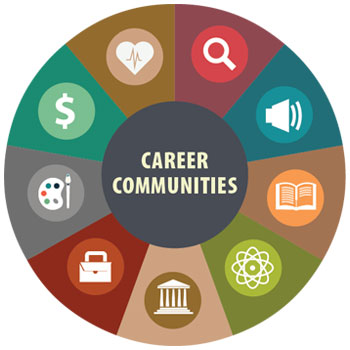I’ve long joked that we could connect current, past, and prospective students through bowling nights organized by college focus area.
The idea was sparked as I was analogizing Guided Pathways with bumper bowling, which blocks the gutters and provides an almost effortless path to higher scores.
I was reminded of my bowling night idea as I was reading a June 2021 report from the Community College Research Center (CCRC), entitled, “How Ohio Community Colleges Are Using Guided Pathways to Personalize Student Support.”
In the realm of academic reports, this one pretty short — only 20 pages total — so I encourage you to read the whole thing.

For me, the top takeaway was the concept of creating “career communities.” This is the term Washington State Community College uses instead of “meta-majors.” Virginia Western calls them “focus areas.”
What I love about this wording is that I can see relationship-driven support for students at almost every stage: From middle schoolers attending camps themed by “career community,” to my wacky bowling nights designed to connect alumni, employers, and prospective students.
The report focuses on how these Ohio community colleges organize their orientations, onboarding, advising, and first-year experience courses (like our SDV) around meta-majors or “career communities.”
The report also seems to focus more on traditional-age students coming in through the high schools, but this just leads me to ask more questions:
- If we treated our focus areas more as communities, how would that change our approach?
- Could it help bust silos and better integrate academic and workforce programs, much like G3 is trying to do with stackable credentials?
- Would it help involve employers and alumni in a more focused way?
- Would it better align our outreach and events — and make them more personalized for current and prospective learners who may want to explore career possibilities?
- Would intentionally fostering smaller, career-focused communities help us create stronger relationships (with students, advisors, peers, mentors, employers), cultivating that culture of care that is so critical to student success?
Just as the authors of “Relationship-Rich Education” talked about creating “constellations” of relationships throughout the college, I can see us developing a constellation of “career communities,” to help students better navigate their pathways — before, during, and after their time at Virginia Western.
The new Opportunity 2027 strategic plan from the VCCS (as well as our Get REAL initiative) has divided up our goals into three distinctive areas, which feel very linear:
- College Access
- Academic Success
- Economic Success
Would organizing efforts around “career communities” help better integrate those three areas and help us understand our role as more holistic and cyclical … to see ourselves as a powerful community connector around meaningful work?
Stephanie Ogilvie Seagle writes about grants, relationships, creativity and more at the Green House Grants Blog.